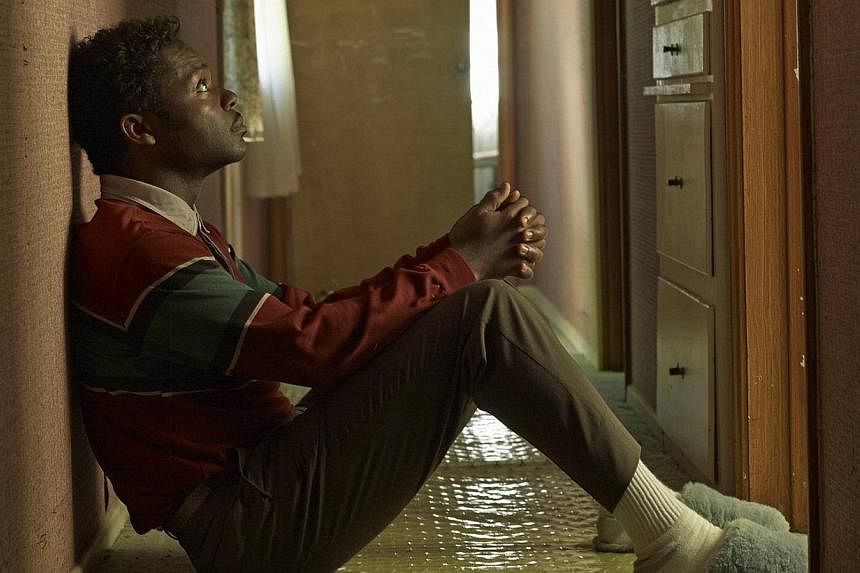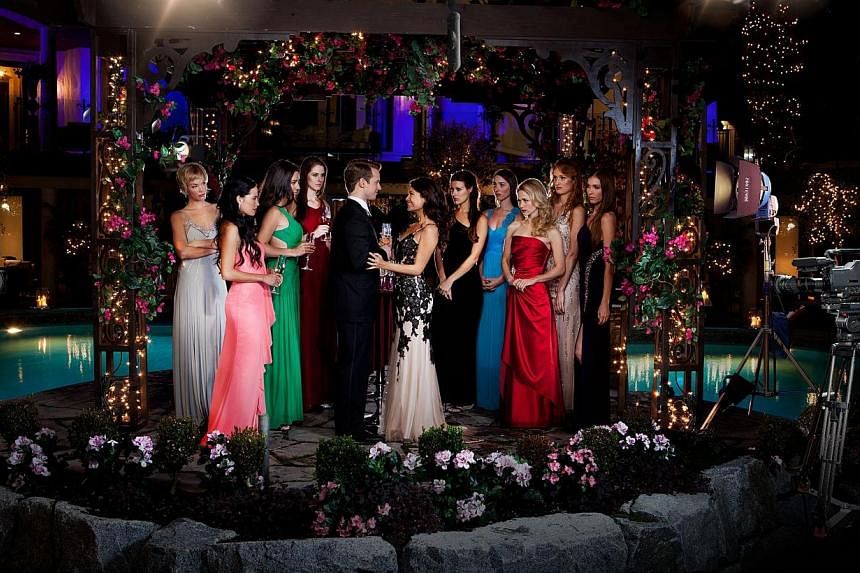The meltdown is the bread and butter of reality television. If you were naive enough to think all those catfights, tirades and tears appear organically while the cameras happens to be rolling, the new TV show Unreal is only too happy to disabuse you.
Inspired by saccharine dating shows such as The Bachelor, it is set backstage at the fictional Everlasting, where a seemingly eligible man, dubbed The Suitor, courts a bevy of women before choosing one to settle down with.
Inspired by writer Sarah Gertrude Shapiro's stint working on the real Bachelor, which she grew to loathe, it is told from the point of view of Everlasting producer Rachel (Shiri Appleby), whose brief is to manipulate these women so the show can control the outcome and get higher ratings.
Overseeing it all is showrunner Quinn (Constance Zimmer), who offers Rachel and her other staff cash bonuses if they can engineer "nudity, 911 calls and fights" among the contestants.
And they proceed to try by any means, including plying the girls with alcohol, denying them food, fanning their insecurities and feeding them false information about bachelor Adam (Freddie Stroma).
The problem, however, is Rachel's conscience. She knows she is a little too good at this, with a particular knack for extracting humiliating confessions from vulnerable contestants and getting them to do what she wants - or for editing the footage to make it look like they have done so.
This may initially seem like well-trodden ground. After all, TV series such as The Comeback have had a go at satirising reality TV, as have films ranging from The Truman Show (1998) to The Hunger Games (2012-2014). Comedy sketch shows such as Saturday Night Live have skewered The Bachelor more than a few times.
But Unreal feels more like a dramatised expose than parody and thus taps into something fresh.
Whether or not you watch reality programming, the dissection works as a deeper commentary on the manufactured authenticity of modern media narratives in general.
The dramatic frame - a workplace drama - makes it pretty entertaining too, with the delightfully politically incorrect Quinn often the one to articulate the darkest biases of such shows, including their little-discussed racism.
Thus she yells at her producers when an African-American woman is the first to be introduced to the suitor because, of course, the finalists on such shows are invariably white. "It's not my fault America is racist," she argues.
She also has very clear ideas about what archetypes the women must exemplify, noting that each season needs "a villain"; a virginal or tomboyish one; a desperate, slightly older single-mother type; and a girl who can be counted on to heat things up, even though she will ultimately be dropped because, as Quinn puts it, "sluts get cut".
But while Unreal takes the time to look at the real people behind these tropes, it also points out that not all the participants are innocent victims. You learn that suitor Adam is in it just to rehabilitate his image after a public-relations disaster, while one contestant is out to further her own TV career.
Despite the occasional indulgence in melodrama (Rachel and Quinn's failed romances are a snore despite credible performances from Appleby and Zimmer), Unreal is a drama with empathy and bite - not bad for a rant against the evils of reality TV.
Meanwhile, if the consensus is that there is a surfeit of reality programming, many would also agree that the small screen could use more thoughtful, character-driven shows.
The TV movie Nightingale fits the bill in that regard, charting the slow unravelling of an army veteran-turned-supermarket clerk, Peter Snowden (David Oyelowo), who at the start of the film reveals he has just killed his elderly mother.
The movie is certainly a rare specimen with its introspective, one-character narrative - the sort of risky independent film that would struggle to secure a theatrical release.
That is, no doubt, how it landed on the HBO movie channel, where it can hopefully find an audience receptive to seeing nobody but Oyelowo on screen for 83 minutes, narrating his thoughts as he talks to himself or into a phone and Web camera.
There is no denying that the actor, who earned a Golden Globe nomination playing Martin Luther King Jr in Selma (2014), is a fine performer with a remarkably expressive range, one capable of conveying the shifting sands of a troubled mind.
But as much as the claustrophobia of watching him alone spinning his wheels reinforces the idea of a man trapped, the story soon runs out of momentum.
It does not quite work as a character study either, its flirtation with mental illness feeling like just that - a pointless dalliance.
Nightingale suffers even more if compared with another one-man drama, Locke, a 2013 film that consisted entirely of actor Tom Hardy sitting in a car making phone calls, but which managed to have audiences on the edge of their seats nonetheless.
It also feels like the sort of awards-baiting performance whose main purpose is to demonstrate Oyelowo's skills, with the artful cinematography and direction used largely in service of that goal. If so, it arguably succeeds, but leaves the audience feeling a little empty.


